第17章 THE THIRD(3)
But there are things about myself that I still find too poignant to tell easily, certain painful and clumsy circumstances of my birth in very great detail, the distresses of my infantile ailments.Then later I find such things as this: "Heard D.s----." The "s" is evidently "swear "--" G.bless and keep my boy from evil." And again, with the thin handwriting shaken by distress: "D.would not go to church, and hardened his heart and said wicked infidel things, much disrespect of the clergy.The anthem is tiresome!!! That men should set up to be wiser than their maker!!!" Then trebly underlined: "I FEAR HIS FATHER'S TEACHING." Dreadful little tangle of misapprehensions and false judgments! More comforting for me to read, "D.very kind and good.He grows more thoughtful every day."I suspect myself of forgotten hypocrisies.
At just one point my mother's papers seem to dip deeper.I think the death of my father must have stirred her for the first time for many years to think for herself.Even she could not go on living in any peace at all, believing that he had indeed been flung headlong into hell.Of this gnawing solicitude she never spoke to me, never, and for her diary also she could find no phrases.But on a loose half-sheet of notepaper between its pages I find this passage that follows, written very carefully.I do not know whose lines they are nor how she came upon them.They run:--"And if there be no meeting past the grave;If all is darkness, silence, yet 'tis rest.
Be not afraid ye waiting hearts that weep, For God still giveth His beloved sleep, And if an endless sleep He wills, so best."That scrap of verse amazed me when I read it.I could even wonder if my mother really grasped the import of what she had copied out.
It affected me as if a stone-deaf person had suddenly turned and joined in a whispered conversation.It set me thinking how far a mind in its general effect quite hopelessly limited, might range.
After that I went through all her diaries, trying to find something more than a conventional term of tenderness for my father.But Ifound nothing.And yet somehow there grew upon me the realisation that there had been love....Her love for me, on the other hand, was abundantly expressed.
I knew nothing of that secret life of feeling at the time; such expression as it found was all beyond my schoolboy range.I did not know when I pleased her and I did not know when I distressed her.
Chiefly I was aware of my mother as rather dull company, as a mind thorny with irrational conclusions and incapable of explication, as one believing quite wilfully and irritatingly in impossible things.
So I suppose it had to be; life was coming to me in new forms and with new requirements.It was essential to our situation that we should fail to understand.After this space of years I have come to realisations and attitudes that dissolve my estrangement from her, Ican pierce these barriers, I can see her and feel her as a loving and feeling and desiring and muddle-headed person.There are times when I would have her alive again, if only that I might be kind to her for a little while and give her some return for the narrow intense affection, the tender desires, she evidently lavished so abundantly on me.But then again I ask how I could make that return? And I realise the futility of such dreaming.Her demand was rigid, and to meet it I should need to act and lie.
So she whose blood fed me, whose body made me, lies in my memory as I saw her last, fixed, still, infinitely intimate, infinitely remote....
My own case with my mother, however, does not awaken the same regret I feel when I think of how she misjudged and irked my father, and turned his weaknesses into thorns for her own tormenting.I wish Icould look back without that little twinge to two people who were both in their different quality so good.But goodness that is narrow is a pedestrian and ineffectual goodness.Her attitude to my father seems to me one of the essentially tragic things that have come to me personally, one of those things that nothing can transfigure, that REMAIN sorrowful, that I cannot soothe with any explanation, for as I remember him he was indeed the most lovable of weak spasmodic men.But my mother had been trained in a hard and narrow system that made evil out of many things not in the least evil, and inculcated neither kindliness nor charity.All their estrangement followed from that.
These cramping cults do indeed take an enormous toll of human love and happiness, and not only that but what we Machiavellians must needs consider, they make frightful breaches in human solidarity.Isuppose I am a deeply religious man, as men of my quality go, but Ihate more and more, as I grow older, the shadow of intolerance cast by religious organisations.All my life has been darkened by irrational intolerance, by arbitrary irrational prohibitions and exclusions.Mahometanism with its fierce proselytism, has, Isuppose, the blackest record of uncharitableness, but most of the Christian sects are tainted, tainted to a degree beyond any of the anterior paganisms, with this same hateful quality.It is their exclusive claim that sends them wrong, the vain ambition that inspires them all to teach a uniform one-sided God and be the one and only gateway to salvation.Deprecation of all outside the household of faith, an organised undervaluation of heretical goodness and lovableness, follows, necessarily.Every petty difference is exaggerated to the quality of a saving grace or a damning defect.Elaborate precautions are taken to shield the believer's mind against broad or amiable suggestions; the faithful are deterred by dark allusions, by sinister warnings, from books, from theatres, from worldly conversation, from all the kindly instruments that mingle human sympathy.For only by isolating its flock can the organisation survive.